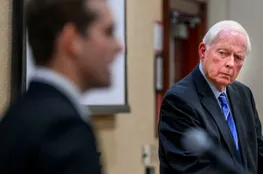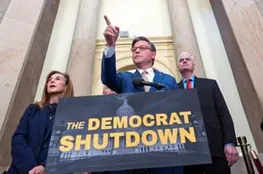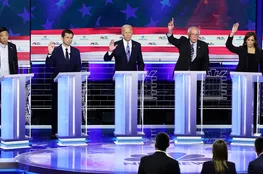In a significant political shift, the Republican Party has elected John Thune, a seasoned senator from South Dakota, as the new Senate Majority Leader. This transition ushers in a new era of Republican leadership, with Thune taking on a pivotal role as President-elect Donald Trump prepares to re-enter the White House. At 63, Thune is now serving his fourth Senate term and has vowed to closely collaborate with Trump, notwithstanding their past divergences. His leadership is deemed crucial for advancing Trump's policy agenda in the upcoming term.
Thune emerged victorious in a competitive race, outpacing Senators John Cornyn and Rick Scott in a confidential ballot vote among GOP senators. This election comes as the Republicans stand poised to assume majority control of the Senate with 53 seats following recent elections. Thune, like his predecessor Mitch McConnell, comes from the traditional wing of the Republican Party and has served as the Republican whip since 2019. Though he has opposed Trump on certain issues, such as the attempt to challenge the 2020 election results, Thune has lately aligned with Trump, including discussions at Trump's Florida residence.
Their forthcoming relationship is expected to be professional, with Thune emphasizing their joint responsibility to govern effectively. Known for his communication skills and respect among peers, Thune has been the frontrunner for much of the leadership race. He temporarily filled McConnell's role last year during McConnell's medical leave and has chaired the Senate Commerce Committee in the past. Thune's ascent is remarkable, considering he first won his Senate seat by defeating the then-Senate Majority Leader Tom Daschle in 2004 by criticizing Daschle's disconnect from South Dakota values.
Over the past year, Thune has actively campaigned for Senate Republicans, raising significant funds, demonstrating his commitment to the party. As part of President-elect Trump’s incoming administration, several key appointments have already been made. Susie Wiles, a seasoned political advisor from Florida, is set to become the chief of staff, marking a critical early decision by Trump. Wiles' experience and strong relationship with Trump are expected to play pivotal roles in the administration.
President-elect Trump has also nominated individuals for key national and foreign policy positions, including Pete Hegseth as a national security figure, despite his lack of prior military or security experience. Trump's choices point to a continuation and possible intensification of his 'America First' policies, emphasizing national security and economic reforms. For international diplomacy, Trump has selected prominent supporters like Mike Huckabee for ambassador to Israel, promising a more aligned U.S. foreign policy with Israeli interests.
Additionally, Trump plans to empower voices like John Ratcliffe and Lee Zeldin in intelligence and environmental roles, respectively, reflecting his policies focused on deregulation and reshaping environmental priorities. Notable among Trump's picks are figures like Stephen Miller and Thomas Homan, known for their hardline immigration stances, signaling Trump's intent to implement strict immigration policies. Meanwhile, William McGinley is expected to serve as White House counsel, supporting Trump's agenda and legal strategies.
These unfolding appointments reveal Trump's strategy of surrounding himself with loyal allies to steer the U.S. through domestic and international challenges while adhering to his vision of an assertive and uncompromising leadership style. Stay informed with developments in government and politics by subscribing to our newsletter.
























